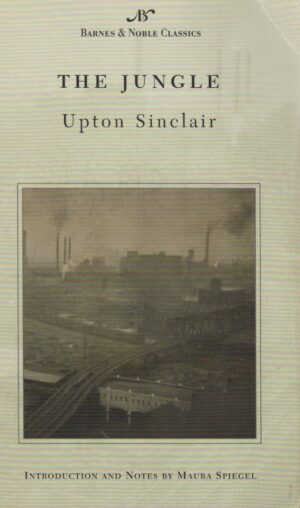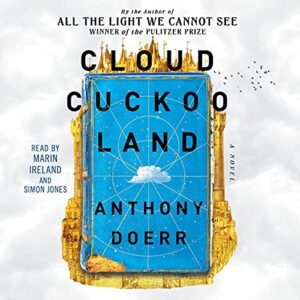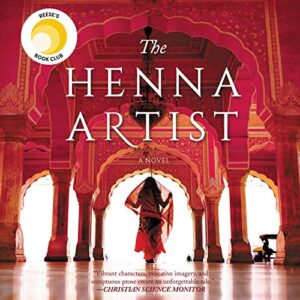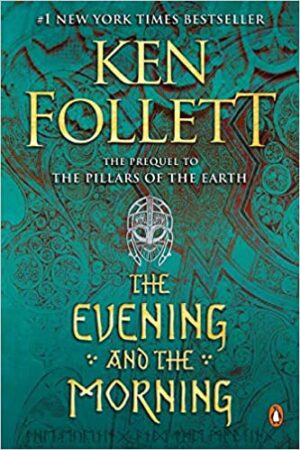
I’m in the process of trying to hack out another novel. The main theme of my invented story is based upon the murder of Minnesota author and muckraker, Walter Liggett, who died in a hail of bullets in the 1930s. So, in doing my research on the early days of investigative journalism, I figured I needed to read Upton Sinclair’s novel about the meat packing industry in Chicago circa 1900; considered by many to be the groundbreaking piece of muckraking fiction.
Jurgis Rudkus, Sinclair’s Lithuanian immigrant protagonist has, in a nutshell, a hard life. He has, other than farming abilities, no real marketable skills when he lands in America. He marries, has children, all the while trying to make a living in politically and economically rigged early 20th century Chicago. Sinclair really is laying out his Socialist agenda here so that the characters he draws, including Rudkus and his young, suffering wife, Ona, and Rudkus’s extended family seem flat and perfunctory; mere pawns in the author’s efforts to shine a light on American economic and political inequality. For the first three-quarters of the story, there’s enough plot and character and soul to move the novel forward such that it’s a tolerable read. But then, inexplicably but certainly intentionally, the book takes a dramatic and unaesthetic turn.
The last quarter of The Jungle has Jurgis at a Socialist rally “seeing the light” and becoming a political activist for the cause. That, in itself, isn’t so surprising given Sinclair himself ultimately became active in Socialist politics, including attempts to become governor of California as a third-party candidate ala Minnesota’s Floyd B. Olson. But, in much the same way Ayn Rand bogs down Atlas Shrugged by having John Gault give a twenty or thirty page speech on the evils of Socialism and Communism (praising Rand’s Objectivism philosophy in the process), so too does Sinclair lose sight of the story he was telling. For the last quarter of the book, readers are bludgeoned over the head with Socialist propaganda, either spewed by tertiary characters or the book’s now-enlightened protagonist. I get that the author had a viewpoint he wished to share with me, the reader. But in the process of preaching Sinclair’s gospel, the book loses any semblance of art or literature.
Still, it was a worthy read as research and, if you are interested in how today mirrors the America of the past, The Jungle remains an important, if flawed, journal of its times.
3 stars out of 5

Confession time: I listened to, rather than read, Anthony Doerr’s highly acclaimed novel of the year. That said, this book is a work by a writer of genius. But the book itself is not a work of genius. Why do I say that?
Here’s the thing. Doerr juggles at least five balls in the air in terms of story and plot in this long and winding tale. There’s a contemporary plot involving an environmental terrorist hell-bent on blowing up a real estate office next to the town library. He has no access to the office but has access to the library so that’s where, in a strange and not very well thought out manner, he plans to plant two bombs to take out the adjacent real estate office. Why? Because the agents of the company are selling off an old growth forest next to his double-wide trailer, destroying a place he considers sacred.
Then there’s the narration from a character inside a mythical and long hidden novel by an ancient Greek poet, the title of which, “Cloud Cuckoo Land” gives the novel its title. Little snippets from the old text (written on velum and concealed from the world for centuries) weave into the story as first-person narration from the tale’s protagonist, and, for the duller of us who don’t get it, are repeated in other plot lines.
Zeno is an old man who, though without any educational training beyond high school, stumbles across “Cloud Cuckoo Land” and attempts to translate it and piece the tale, such as it remains, together. His story is told in loving and vibrant detail, including the fact that, at age 86, he ends up rehearsing a play based upon the ancient novel in the library just as the bomber is ascending the stairs to blow the place up. He’s a Korean war vet who, while never formally coming out to the folks in the small town he inhabits before and after the war, longs for an Englishman he met in captivity in Korea. It is the Englishman who convinces Zeno he is smart enough to tackle, without any formal training, translating ancient Greek into English.
Then there is the storyline set in the 15th century during the siege of Constantinople involving a young Greek woman, again, a person of limited education, finding a copy of “Cloud Cuckoo Land”, preserving it, escaping with it, and meeting up with one of the Muslim enemy; a young Bulgarian woodcutter. The two interact outside the walls of the city as the former capital of Christianity is about to fall and end up falling in love. Through it all, Anna keeps the manuscript safe and eventually, the manuscript ends up in the archives of the Vatican, preserved for Zeno to decipher.
The final plot thread involves Konstance, a young woman (circa 2060) hurtling from Earth with her parents and a few dozen other souls towards a distant planet where they have been told they will start life anew. This is necessary because Earth is in the throes of disease, and famine, and floods, and inclement weather such that it is becoming uninhabitable due to climate change. During her long journey, things happen to Konstance that confine her to a secure pod within the space ship where she discovers, in the Argos’s virtual library, “Cloud Cuckoo Land”. That’s where the story arc of the final segment, along with the environmental themes and the presence of owls (you need to read the book to figure out that connection!) all come together.
That’s a lot, right? A historical novel, A thriller. A literary piece. Fantasy. Science Fiction. It’s all here in one story. To make it work, Doerr asks the reader for two things. One, infinite patience because the threads of the tale bob in and out like a boxer trying to avoid a punch. And two, the ability to forgive him for using so many coincidences throughout the five separate story arcs he welds together into this mammoth work. Doerr’s writer enough to pull it off, though, in the end, this is not a great work of literature like All the Light. It is, in the end, an experimental piece along the lines of Ulysses, which is of interest since, of course, Ulysses the Greek hero does indeed figure in the telling of the tale.
4 stars out of 5. Not a masterpiece of fiction but a wild, somewhat predictable gathering of genres into one story.

Again, we listened to this book on Audible. While it’s clearly a novel designed and written from a woman’s perspective (It’s a Reese Witherspoon Book Club pick), there’s enough in the story to keep an old man listening. The story follows the life and trials and tribulations of Lakshmi, a child bride who ran away from her abusive husband, Hari and found work as both a henna artist, painting the bodies of rich Indian women with designs and images, as well as a natural healer. It was Hari’s mother, a beloved figure to Lakshmi despite the beatings she suffered at the hand of Hari, who taught Lakshmi holistic medicine and, not inconsequentially, the powers of plants that can trigger abortions. Lakshmi uses her knowledge to assist, at first, courtisans (high level prostitutes and concubines) in getting rid of unplanned pregnancies. But then, at the urging of a wealthy man she meets, she agrees to supply “morning after” type potions to mistresses of wealthy Indian men who find themselves pregnant.
The tale also follows the journey of Lakshmi’s younger sister, Radha, who leaves home after the death of the girls’ parents, and finds Lakshmi, a sister she has never met. The author does a masterful job of character building with respect to the sisters, and it is their interaction, disputes, love, conflict, and the mess of family that is the book’s over arching theme.
Set in the late 1950s in India, not long after independence, the story has a very narrow focus. It does not pretend to be a historical novel, does not attempt to explain all the religious and caste issues that plagued India then and now. It is simply the story of two sisters finding each other and trying to create a life of family and belonging.
4 and 1/2 stars. Obviously, a great pick for a women’s book club.

Another audiobook we listened to on our long drive to and from Camp Verde. OK. So if 43,000 folks weigh in (on Amazon) and the overwhelming view is that this is a masterpiece, it must be so, right?
Wrong. While this story is, at times, a compelling tale of evil and revenge set against the Viking era in England (late 900s to early 1000s), both my wife and I agreed, while listening to this long and winding tale of wicked men and duplicitous women, that the characters Follett draws are universally flat, cartoonish, and well, not all that interesting. Then there is the timeframe for the novel. While choosing to set it in the era identified apparently fits in with the sequence of other “Kingdom” novels the author has penned, in fact, very little is really known of the era depicted and nothing of real note, in terms of history, took place. Which leads the author to do two things that make this nowhere near the book Pillars of the Earth is.
First, the dialogue includes many contemporary sayings and expressions, which causes the reader (or here, the listener) to disengage from the suspension of disbelief. And second, the characters are really cardboard cutouts; mere actors in a play where every evil person has nothing redeemable within them and the heroes and heroines are all universally good and moral.
In the end, I found this to be a long and rambling journey to a trite and tidy conclusion (I won’t spoil it with details but the bad people all suffer their just desserts) that really didn’t add much to my understanding of England during the timeframe or the inner lives of the people inhabiting the story.
3 stars out of 5.
Peace
Mark


